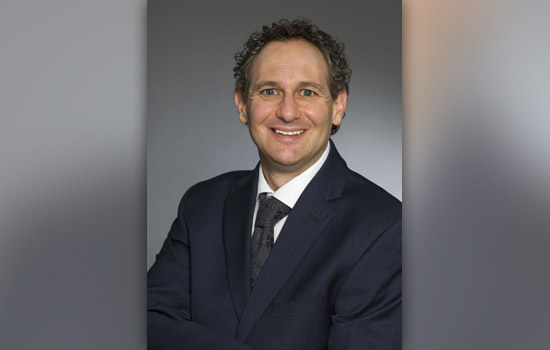RIT/Nazareth Tech2Teach program receives $300,000 to develop future STEM teachers
Collaboration will attract undergraduate STEM majors to careers in secondary education
Scott Franklin
Rochester Institute of Technology and Nazareth College have won a $300,000 grant from the National Science Foundation to cultivate interest among RIT science majors in careers in secondary education.
The grant from the NSF Robert Noyce Teacher Scholar Program will fund an RIT Learning Assistant program specifically for majors in physics, biology, chemistry and math in RIT’s College of Science. Learning Assistants are undergraduates who work with instructors to implement student-centered pedagogies in science, technology, engineering and mathematics, or STEM, classrooms. The training program will develop courses in discipline-based education research and match students with faculty mentors.
The effort supports Tech2Teach, the agreement between RIT and Nazareth established in 2011 to support RIT students considering careers as middle- and high school math, science and technology teachers. Tech2Teach allows undergraduate RIT majors in the College of Science, College of Applied Science Technology, Golisano College of Computing and Information Science and the Kate Gleason College of Engineering to begin graduate work in Nazareth’s Master of Science education program during their third and fourth years.
“The Learning Assistant program is the gateway through which RIT students can enter Tech2Teach and should increase the number of students who pursue secondary education careers,” says Scott Franklin, professor of physics and director of the Science and Mathematics Education Research Collaborative at RIT. “As a result, public schools will ultimately be able to recruit from a pool of new teachers who have a deep knowledge of a STEM discipline as well as educational theory and practice.”
Franklin is working closely with Craig Hill, interim dean of the Nazareth School of Education, and Patricia Huntington, director of Academic Support Services in the School of Education, at Nazareth to develop the two-phased program, most of which will reside at RIT.
“Nazareth College is committed to addressing the decline in the number of college graduates in the U.S. who pursue K-12 teaching careers in science, technology, and mathematics,” Hill says. “Nazareth values this creative partnership with RIT that encourages undergraduate students to pursue the further study of education while showcasing a spirit of collaboration among higher educators in our region.”
The first year of the program will raise faculty and student awareness of the new Learning Assistant possibilities at RIT. Franklin will develop the course Science Education: Theory and Practice that will be offered in the spring.
Seminar speakers and workshops will help faculty and students develop proposals for student-centered class activities, such as laboratories and group activities, with built-in assessment. During the second year of the program, the Learning Assistants will help implement the pedagogical tools into the classroom.
Members of RIT’s Science and Math Education Research Collaborative, or SMERC, will work with faculty and students. In addition, students who find a passion in discipline-based education can continue doing research with members of the collaborative.
“This program brings together a variety of complementary strengths—RIT faculty’s devotion to STEM education, Nazareth’s program in secondary education, and the SMERC’s discipline-based education research—to tackle an issue of national importance,” Franklin adds. “It really is a win-win for all involved.”
For more information about the Learning Assistant Program Tech2Teach, contact Scott Franklin at svfsps@rit.edu.









